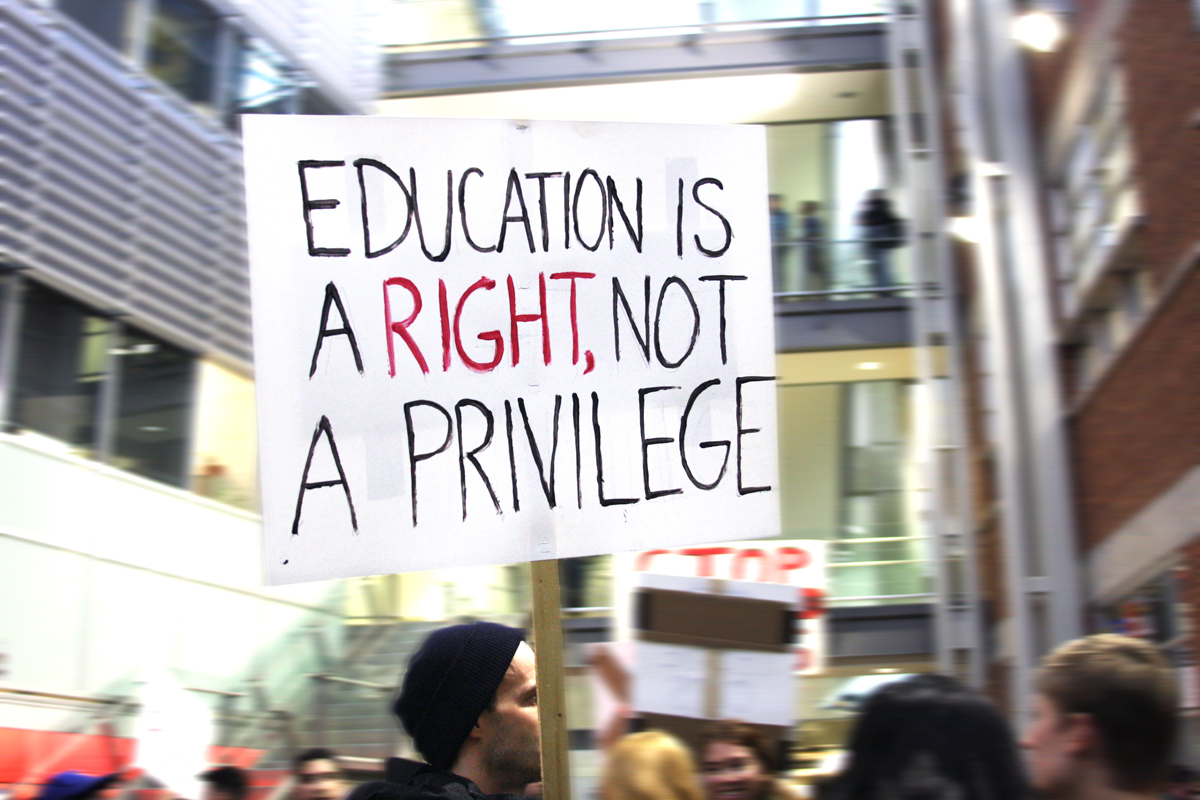Cape Breton University (CBU) officials released an open letter last week demanding that the federal government and provinces develop a strategy to eliminate tuition fees for post-secondary education.
Cape Breton University president David Wheeler, faculty association president Scott Stewart, and students’ union president Brandon Ellis are calling on governments to eliminate student tuition rates in a letter addressed to federal political parties as well as the provincial Liberal government in Nova Scotia.
The three university officials from CBU urged their counterparts across the country to sign onto the letter.
The letter is intended to “appeal to the leaders of Canada’s federal political parties to seek a new strategic relationship with the country’s vital but currently underfunded and undervalued universities.”
With tax-funded tuition existing in over 40 countries, and tuition-free models in Finland, Germany, and Norway as their bases for comparison, the CBU leaders are calling for “the phased introduction of tuition-free higher education (backed by a progressive system of taxation at the federal level and targeted living expense grants at the provincial level).”
The plan proposes free tuition “for all those who require it, including all First Nations students” before eventually abolishing tuition fees altogether after consultation between the provinces and the federal government.
Although higher education is part of provincial and territorial jurisdiction, university officials from Cape Breton argue that only federal funding will induce the potential for systemic nationwide change. Campaign organizers suggest that eliminating tuition and providing needs-based grants would eliminate student debt, equating the merits of their proposal with the introduction of publicly-funded national health care.
U of M officials respond
University of Manitoba president David Barnard and UMSU president Al Turnbull were not contacted by CBU about the letter.
University of Manitoba Faculty Association president Thomas Kucera responded that the association is aware of the campaign and the open letter on the elimination of tuition. He would not comment further until the executive council and board of representatives have had the opportunity to consider it.
When asked for comment on the matter, John Danakas, executive director of marketing and communications at the U of M, said that Barnard has spoken publicly on the matter of tuition.
As part of the wider U of M budget discussion in preparation for up to four per cent budget cuts to academic and non-academic units, Barnard spoke out against low tuition fees.
University administration has justified the proposed cuts as a necessary response to various financial constraints—specifically, insufficient government grants, rising faculty salaries, and low tuition—stating that the university’s budget challenges are in line with what is happening at universities around the country.
In a recent lecture organized by the Student Action Network at the U of M, Alan Sears, a sociology professor at Ryerson University, spoke about the economic state of post-secondary institutions, as part of a series of rallies and meetings with regards to the university’s planned budget cuts.
“The cutbacks here [ . . . ] are part of a broader pattern of transformation across the university system in Canada and, in fact, globally,” said Sears to the crowded U of M lecture hall, opposing what he refers to as the neoliberal restructuring of universities.
“The universities everywhere are under tremendous stress of restructuring.”
Sears re-envisioned universities as what he calls more democratic institutions, driven by students. “It puts students in the driver seat in terms of collectively and democratically having control over the institutions that are designed to educate them, so that rather than students being customers of the institution [ . . . ] students are actively involved in the decision making processes around curriculum.”
Turnbull told the Manitoban that he thinks the CBU letter on tuition is a phenomenal campaign.
“I would need to know more about the political climate [in Nova Scotia] though; it could be different than here. This is certainly worth exploring further,” he said.
On behalf of UMSU, Turnbull argued that improved federal financial support is required to create more sustainable change in post-secondary funding.
In Manitoba during the 1990s, government funding in general decreased relative to past levels. As the UMSU website points out:
“Massive federal funding cuts to post-secondary education along with the ensuing cuts in provincial operating grants to Manitoba universities and colleges resulted in tuition free increase of more than 170 per cent.”
For about a decade from 1999-2009, tuition fees across the province remained frozen under the NDP government. Tuition fees were subsequently increased by 4.5 per cent in 2009. Since 2011, tuition increases have been capped at the rate of inflation.
The Association of Universities and Colleges of Canada recently compiled a report on Statistics Canada research regarding tuition fees paid by full-time students at their member institutions across Canada. Their report found that CBU students pay $5,097-6,119 per year for post-secondary education, whereas U of M students pay $3,397-3,961 for their full-time studies.




